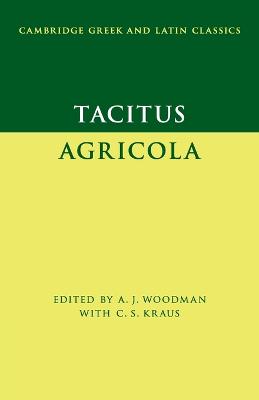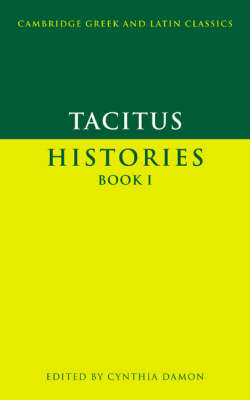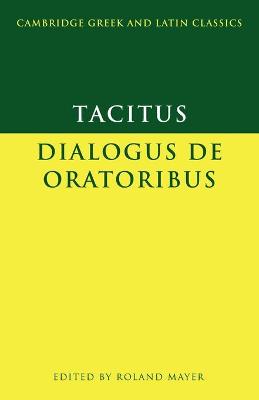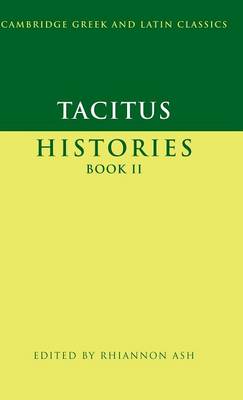Cambridge Greek and Latin Classics
5 total works
The fourth book of Tacitus' Annals has been described as 'the best that Tacitus ever wrote'. It covers the years AD 23-28, beginning at the point where Tacitus noted a significant deterioration in the principate of the emperor Tiberius, and the increasingly malign influence of his 'evil genius' Sejanus. In this new edition the editors present an improved text of Annals IV, explain in detail the difficulties and unusual features of Tacitus' Latin, and discuss the dramatic, structural and literary qualities of the narrative. In the introduction they express radical views on how the Romans wrote history and consider the political, moral and stylistic dimensions of the historiographical tradition. Although intended primarily as a textbook for sixth-forms and undergraduates, the edition contains much which will be of interest to scholars of Latin literature and to Roman historians.
The first work of any great historian has always commanded attention, and Tacitus was ancient Rome's very greatest historian. His biography of his father-in-law, governor of Britain in the years AD 77-84, is a literary masterpiece: it combines penetrating political history with gripping military narrative and throughout poses the question (still very much alive today) of how one should live one's life under a tyranny. This is the first commentary in English on the Agricola for almost half a century: in keeping with the aims of the series, particular attention is paid to the understanding of Tacitus' Latin, but a whole range of generic, historical, textual and narrative topics is covered, and it will be suitable for advanced undergraduates and graduate students as well as scholars. Tacitus' Agricola remains a key text for anyone with an interest in Roman Britain as well as ancient biography.
The first historical work by Rome's greatest historian, Tacitus' Histories hold a crucial place in the history of Latin literature. Book I covers the beginning of the infamous 'Year of the Four Emperors' (69 CE), which brought imperial Rome to the brink of destruction after the demise of the Julio-Claudian dynasty. Galba, Otho, and Vitellius ride the currents of senatorial politics and military sedition to power, while the survivor Vespasian waits just off-stage. After a distinguished public career during the principates of Vespasian and his sons, Tacitus, in middle age, embarked on a historical narrative recording the seering events of the Rome of his youth. This edition provides a Latin text of Book I, a commentary accessible to students of intermediate level and above, and an introduction discussing historical, literary, and stylistic issues. The chance survival of three parallel accounts permits detailed analysis of Tacitus' selection and stylization of material.
Tacitus' Dialogus de Oratoribus is his most neglected work - there has not been an English-language commentary in over a century - and yet it is arguably his most original. Although among his earliest writings it shows complete mastery of the dialogue from and of Ciceronian idiom. It makes an original contribution to the continuing first-century AD debate about the role of oratory in Rome under the Principate, and raises the question of what a man can do to secure lasting renown. This edition contains a substantial introduction discussing such matters as the place of the work in the author's oeuvre, its style and layout. The commentary is designed to explain not only the language, and its subtle reformation of the Ciceronian idiom, but also the large issues mentioned about the decline of oratory, and the best career for a man to follow.
The Histories is the first historical work by Rome's most accomplished and challenging historian, Tacitus. It narrates the brutal civil wars which broke out in AD 68-9 across the Roman Empire after the suicide of the last Julio-Claudian emperor, Nero. Book II covers the bloody finale of the war between two of those emperors, Otho and Vitellius, and the emerging challenge from the eventual victor, Vespasian. The progression of events, kaleidoscopic and gripping, unfolds over a broad geographical sweep and is presented by Tacitus with consummate artistry. This commentary on Histories Book II elucidates historical questions, clarifies Tacitus' historiographical techniques and explains grammatical difficulties of the Latin for students. It also includes a Latin text, relevant maps, and a comprehensive introduction discussing historical, literary and stylistic questions.




